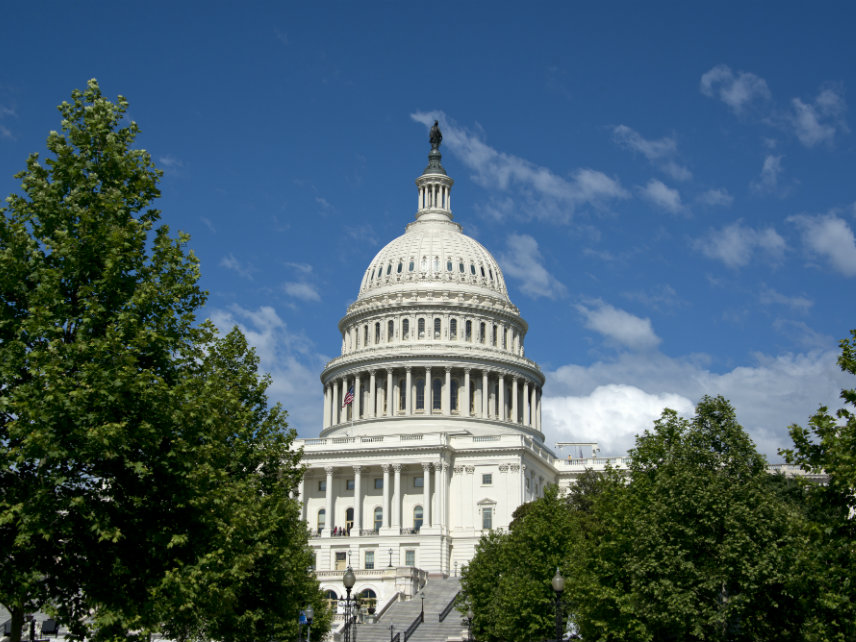The Financial Choice Act Doesn't Repeal Dodd-Frank, but It's Still a Big Deal
The House approved the bill with a party line vote on Thursday, but it's prospects are dim in the Senate.

The number of regulations on American banks has doubled since 2010, which means plenty of work for regulators in Washington but less time (and money) for banks to do the things they are supposed to be doing.
The culprit behind those growing piles of financial regulations is the Dodd-Frank Act, passed by Congress in response to the banking collapse that led into the so-called Great Recession.
Congress on Thursday took a step towards reducing those piles of regulations, as the House voted straight down party-lines to approve the Financial CHOICE Act. Though the bill is expected to face significant opposition in the Senate, its passage is the surest sign yet that Republicans are serious about rolling back Obama era regulations that force banks to spend more time (and money) dealing with government imperatives.
"This law may have had good intentions," said Speaker of the House Paul Ryan on Thursday, referring to the Dodd-Frank Act, "but its consequences have been dire." Republicans said the reforms contained in the Financial CHOICE Act would rein-in regulations that have made it harder for small banks to operate, while providing a better mechanism for unwinding large banks that become unstable.
Despite the rhetoric from both major parties in advance of Thursday's vote, the Financial CHOICE Act does not repeal Dodd-Frank and does not deregulate the financial sector. As Thomas Hogan, a professor of finance at Troy University, noted at The Hill, the bill actually leaves many Dodd-Frank provisions intact and puts "an emphasis on financial stability while trimming excessive regulations that have harmed consumers and business activities."
A major component of the House-passed bill would give small banks an escape from complying with the complex Dodd-Frank rules that attempt to stop banks from taking on too many risky investments. Though those rules are only necessary for larger banks, all financial institutions must abide by them. Under the Financial CHOICE Act, smaller banks would have the option of ignoring those rules if they maintain a larger reserve of cash as a backstop against bad investments.
Another key element of the bill would create a new chapter in the bankruptcy code to allow failing banks to be unwound through bankruptcy instead of relying on bailouts or government-imposed restructuring. Even though Dodd-Frank was passed, in part, to prevent future bailouts of banks deemed "too big to fail," the law may have created a regulatory environment that makes future bailouts more likely by giving the federal government a larger role to play.
Politically, though, the biggest change in the Financial CHOICE Act is the restructuring of the Consumer Financial Protection Bureau. As I wrote last week, the proposal would allow the president to remove the director of the CFPB at will, and would force the bureau to go through the congressional appropriations process (instead of getting its budget directly from the Federal Reserve). The bill also gives the CFPB a Senate-confirmed inspector general, requires cost-benefit analyses of CFPB regulatory proposals, and prevents the CFPB from collecting consumers' financial information without permission (something that it has a history of doing).
Democrats oppose the dismantling of Dodd-Frank and particularly dislike the idea of reining in the CFPB, setting up a potential battle in the Senate, where Republicans don't have enough votes to force the bill through without Democratic support—though some elements of the bill could be passed with a simple majority through the reconciliation process. During debate in the House, Democrats indicated support for some parts of the bill, which provides a potential way forward for some, but likely not all, of the Financial Choice Act.
Still, Thursday's vote is a sign that—even with controversy swirling around Washington and distractions aplenty—Republicans in Congress are serious about sweeping aside regulations.


Show Comments (21)